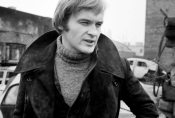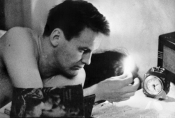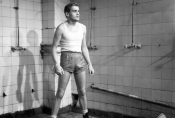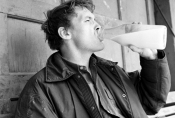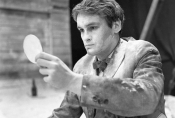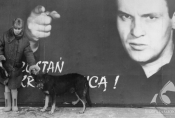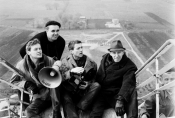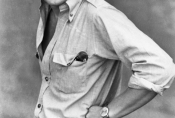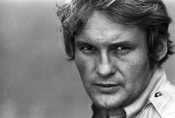Jerzy Skolimowski
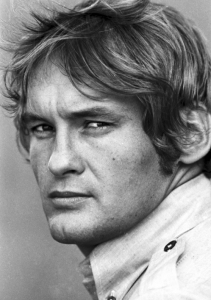
Film director, screenwriter, actor, producer, painter, poet. He was born on May 5, 1938, in Łódź. Graduate of ethnography at Warsaw University (1959) and the Directing Department of the State School of Theatre and Film in Łódź (1963). As a poet, he made his debut in 1957 in "Nowa Kultura".
Skolimowski is an artist with an extremely interesting and complex biography. He practiced boxing, played drums in a jazz band, acted in student theatre and the Bim-Bom theatre, as well as publishing an interesting book of poetry. His chief purpose, however, was film. He started by contributing to the script of Niewinni czarodzieje/Innocent Sorcerers (1960) by Andrzej Wajda and Nóż w wodzie/Knife in the Water (1961) by Roman Polański. He made his debut with the unconventional feature Rysopis/Identification Marks: None (1964, awards in Arnhem and Warsaw, Warsaw Mermaid) which was... assembled from student films shot in film school. The protagonist, Andrzej Leszczyc, played by the director himself, leaves university and is immediately conscripted. He only has a few hours until the train departs … Skolimowski's film debut is a psychological study of a bitter young man unable to find a place for himself in an unfriendly reality. His story is continued in Walkover (1965, awards in Arnhem and Mannheim, the Andrzej Munk Award), and the triptych is concluded in Bariera/Barrier (1966, awards in Bergamo and Valladolid, Warsaw Mermaid), in which the protagonist – a young Polish intelligentsia representative, this time played by Jan Nowicki – is trying to overcome the title barriers standing between him and the world, such as money, conventions, hierarchy.
In 1967, he made Ręce do góry/Hands up, a settlement story set during a university class reunion on the tenth anniversary of their graduation. A group of erstwhile friends decides to visit one of their colleagues who did not come to the meeting. The night journey on a freight train is fuelled by alcohol and memories. In the morning, it turns out that the wagon was standing on the siding for the entire night. The film has was not approved for distribution by censors (it was released only in 1981, during the so-called First Solidarity, updated by the director with an introduction). Disgusted by this turn of events, the director went abroad, where he made a number of excellent films, including Start (1967, Golden Bear in Berlin), Przygody Gerarda/The Adventures of Gerard (1970), Na samym dnie/Deep End (1970), Wrzask/The Shout (1978, award in Cannes), Moonlighting (1982, award in Cannes), Latarniowiec/Lightship (1985, award in Venice), Wiosenne wody/Torrents of Spring (1989). In 1991, he made a Polish-British-French film adaptation of Gombrowicz's Ferdydurke, in 2008 – in collaboration with French cinema – Cztery noce z Anną/Four Nights with Anna (awards in Gdynia, Tokyo and New York, two Eagles), the poignant story of a shy man in love who is trying to get closer to the object of his affection; two years later he made the Polish-Norwegian-Hungarian-Irish Essential Killing (awards in Venice, Mar del Plata, Gdynia, four Eagles), a suspense-filledstory of a mysterious man caught by U.S. soldiers in Afghanistan and exported to a secret base in Central Europe, who manages to escape.
Jerzy Skolimowski is also a painter. His works have been exhibited in galleries in the U.S., Canada, France, Italy, Greece, Germany and Poland.
He was awarded the Commander's Cross of the Order of Polonia Restituta (2011), honorary doctorate of the University of Warmia and Mazury in Olsztyn (2011). He received the Lifetime Achievement Award at the Festival of the Art of Cinematography Plus Camerimage in Bydgoszcz (2010) in addition to other prestigious awards.
Jerzy Armata
Selected filmography
-
1964
IDENTIFICATION MARKS: NONE
-
1967
HANDS UP
